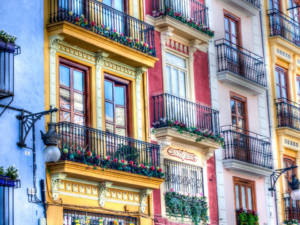
Relocating to a new country can be an exhilarating adventure, but it also comes with its fair share of challenges. For those immigrating from the US to Spain, one of the biggest hurdles lies in adapting to a new culture and way of life. While Spain offers a vibrant and welcoming environment, understanding and embracing the cultural differences can be a significant adjustment for expats.
One of the most prominent challenges for US immigrants in Spain is the language barrier. Spanish is the primary language spoken in the country, and while many locals may speak English, it’s essential to learn Spanish to fully integrate into the society. Taking language classes, practicing with language exchange groups, or using language-learning apps can help overcome this hurdle and facilitate better communication with locals. Another challenge is adapting to the Spanish pace of life. Spaniards have a more relaxed approach to time management and prioritize enjoying life over a strict adherence to schedules. This can be a cultural shock for those accustomed to a fast-paced, time-driven lifestyle. Embracing the Spanish concept of “mañana” (tomorrow) and adopting a more laid-back mindset can help alleviate the stress associated with this cultural difference.
Moving from the US to Spain presents an exciting opportunity for growth and exploration, but it also brings its own set of challenges. By recognizing and actively working to overcome the language barrier and adapting to the Spanish pace of life, expats can navigate the biggest hurdles they may encounter. Embracing the new culture, connecting with local communities, and seeking support from fellow expats can also ease the transition and make the experience of living in Spain a truly enriching one. Remember, challenges are a part of any new adventure, and with the right mindset and determination, they can be overcome, leading to a fulfilling life in the beautiful country of Spain.

Here are 10 things that Americans find very different when they move to Spain as contributed by our team at Revalencia!
- Language: The language barrier is often the most noticeable difference for Americans living in Spain. The primary language is Spanish, and while English may be spoken in tourist areas, learning Spanish is essential for day-to-day interactions.
- Siesta Culture: Spaniards embrace the tradition of the siesta, where businesses and shops close for a few hours in the afternoon. This can be an adjustment for Americans used to a continuous workday.
- Meal Times: Spaniards have a different eating schedule, with lunch typically being the main meal of the day, eaten around 2-3 pm, and dinner taking place much later, around 9-10 pm. Americans may need to adjust their meal times accordingly.
- Socializing and Personal Space: Spaniards are known for their warmth and friendliness, often embracing physical contact and close personal space. Americans used to more personal space may find this difference initially uncomfortable.
- Work-Life Balance: Spain values work-life balance, with a focus on leisure time and enjoying life. Americans accustomed to a more work-centric culture may need to adapt to this different approach.
- Shopping and Store Hours: Spaniards have a more relaxed attitude towards store hours, with many shops closing for an extended lunch break and smaller stores closing in the afternoon. Americans used to longer operating hours may need to plan their shopping accordingly.
- Public Transportation: Spain has an extensive and efficient public transportation system, including buses, trains, and metros. Americans not used to relying on public transport may find this change liberating or challenging, depending on their previous experiences.
- Personal Appearance: Spaniards often take pride in their appearance and tend to dress more formally than Americans, even in casual settings. Americans may need to adjust their wardrobe choices to align with local norms.
- Festivals and Celebrations: Spain is renowned for its vibrant festivals and celebrations throughout the year. Americans may find themselves immersed in unique cultural events and traditions, adding excitement and new experiences to their lives.
- Socializing and Nightlife: Spaniards enjoy a lively social scene and have a vibrant nightlife culture. Americans may need to adapt to later nights out and embrace the Spanish love for socializing and enjoying time with friends and family.
These are just a few examples of the many differences Americans may encounter when living in Spain. Embracing these distinctions with an open mind and a willingness to adapt will help create a more enriching and enjoyable experience in this beautiful country.








